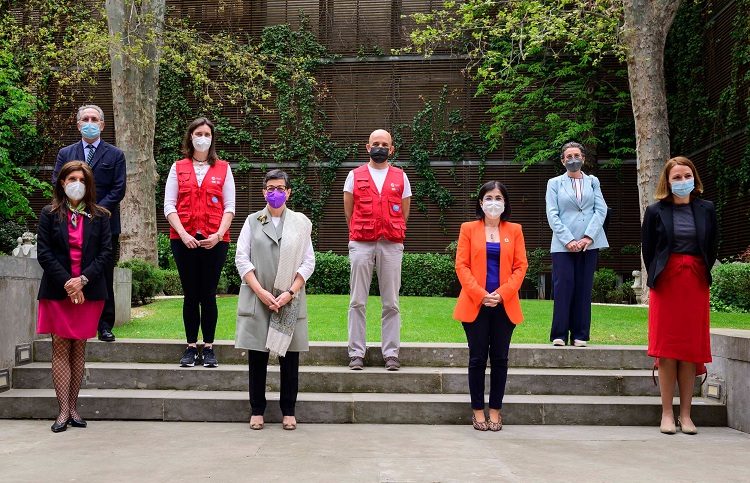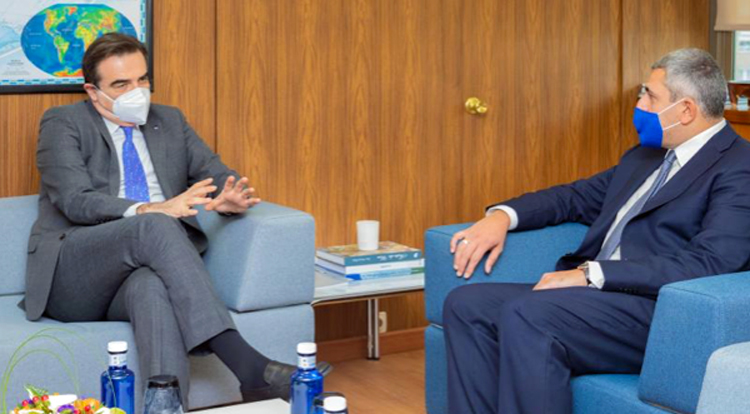The Diplomat
The Minister of Foreign Affairs, Arancha González Laya, and the Minister of Health, Carolina Darias, renewed yesterday the agreement to facilitate the deployment of the Spanish Technical Team for Emergency Aid and Response (START) to humanitarian emergencies in developing countries.
Under the agreement, signed yesterday at the Palacio de Viana and which will be valid for four years, extendable for another four years, the Spanish Agency for International Development Cooperation (AECID) and the National Health System (SNS) will facilitate the deployment of START’s human and logistical teams in less than 72 hours anywhere in the world, so that they can intervene in all humanitarian emergencies in which the Spanish Cooperation decides to act.
After signing the agreement, Arancha González Laya affirmed that the red vests (as the START team is known) “symbolize the effort of humanitarian diplomacy” to reinforce the image of Spain “as a supportive country” before the world. Likewise, she praised the “great responsibility” of the members of START, who represent “the solidarity of the Spanish people, the excellence and commitment of their health professionals”, as well as the rest of the emergency teams of the autonomous communities.
For her part, Carolina Darias assured that the START team is an example of coordination and cohesion both with other countries and between the different autonomous communities and stressed the importance of collaboration between the various administrations involved in operations at the international level.
START was launched in 2016, led by AECID. The team includes, in addition to medical and nursing staff from the National Health System, health personnel from other fields and experts in water and sanitation, experts in logistics and technicians in electricity and electronics, among other professionals needed for humanitarian emergencies. The health team is made up entirely of volunteer personnel. START can be deployed with personnel and humanitarian equipment or with personnel only. Its medical equipment is classified as Level 2 (EMT2), with a field hospital with surgical capacity and the capacity to treat 20 patients.
According to the Foreign Ministry, each START deployment is previously approved by the World Health Organization (WHO), the logistics of each deployment are coordinated within the Team Europe initiative of the European Commission’s European Civil Protection Mechanism and the different autonomous communities provide their health workers from the National Health System in coordination with the Ministry of Health. AECID leads the implementation of the START device through its Humanitarian Action Office.
The first START deployment took place in April 2019, in Mozambique, in response to the emergency caused by Cyclone Idai. After a 2020 without deployments or drills and during which the team focused on improving infrastructure, the second START deployment took place on March 11, 72 hours after the explosions at a military base in Bata, Equatorial Guinea, when a team of 14 personnel, including doctors, medical staff and humanitarian aid experts, was sent to treat the wounded in three hospitals in the city.







